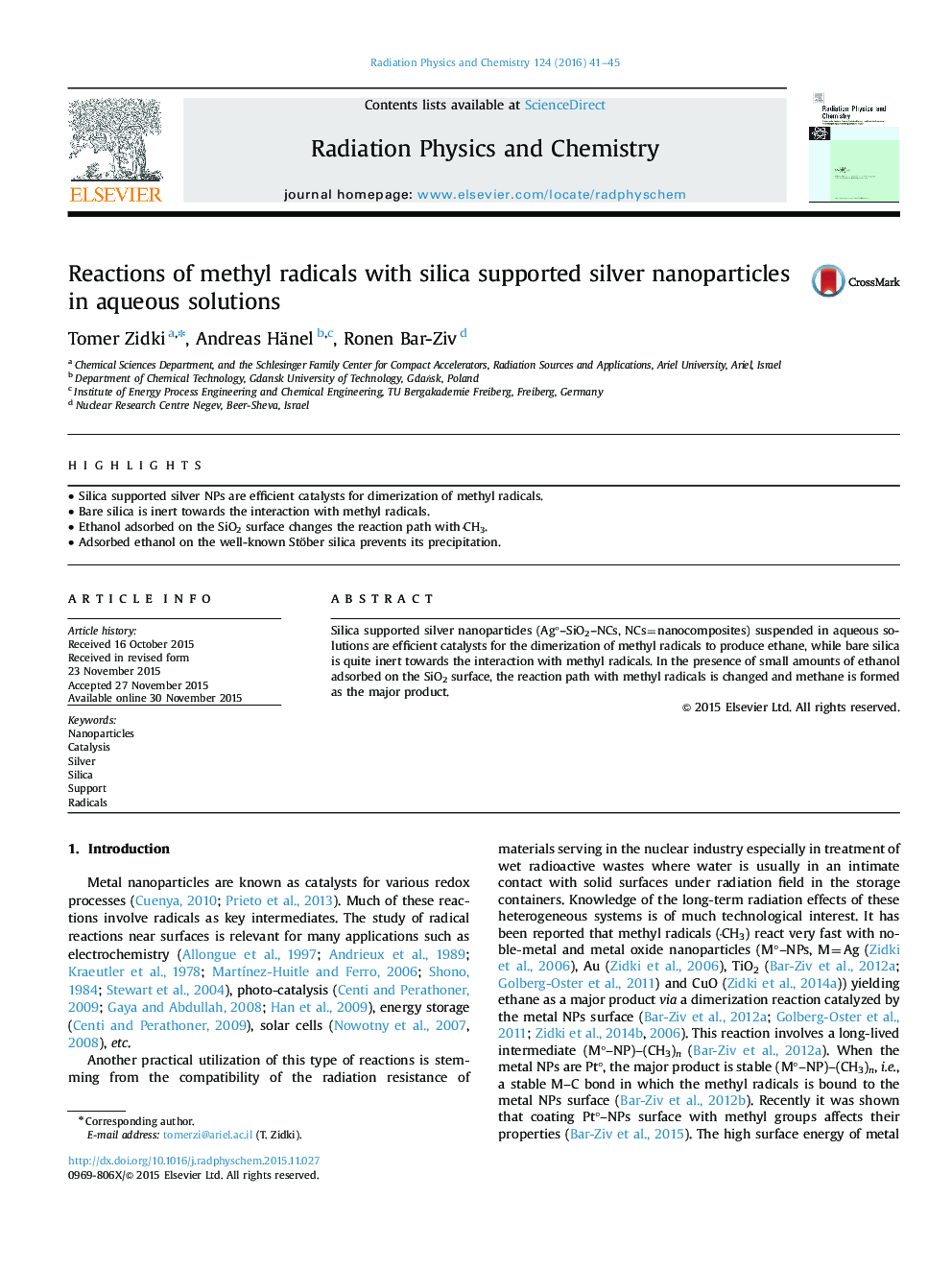| Article ID | Journal | Published Year | Pages | File Type |
|---|---|---|---|---|
| 1891016 | Radiation Physics and Chemistry | 2016 | 5 Pages |
Abstract
•Silica supported silver NPs are efficient catalysts for dimerization of methyl radicals.•Bare silica is inert towards the interaction with methyl radicals.•Ethanol adsorbed on the SiO2 surface changes the reaction path with ·CH3.•Adsorbed ethanol on the well-known Stöber silica prevents its precipitation.
Silica supported silver nanoparticles (Ag°–SiO2–NCs, NCs=nanocomposites) suspended in aqueous solutions are efficient catalysts for the dimerization of methyl radicals to produce ethane, while bare silica is quite inert towards the interaction with methyl radicals. In the presence of small amounts of ethanol adsorbed on the SiO2 surface, the reaction path with methyl radicals is changed and methane is formed as the major product.
Related Topics
Physical Sciences and Engineering
Physics and Astronomy
Radiation
Authors
Tomer Zidki, Andreas Hänel, Ronen Bar-Ziv,
